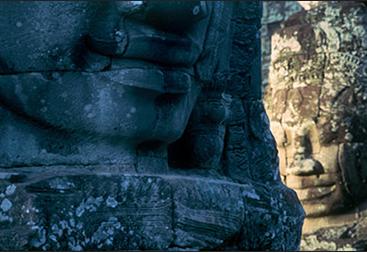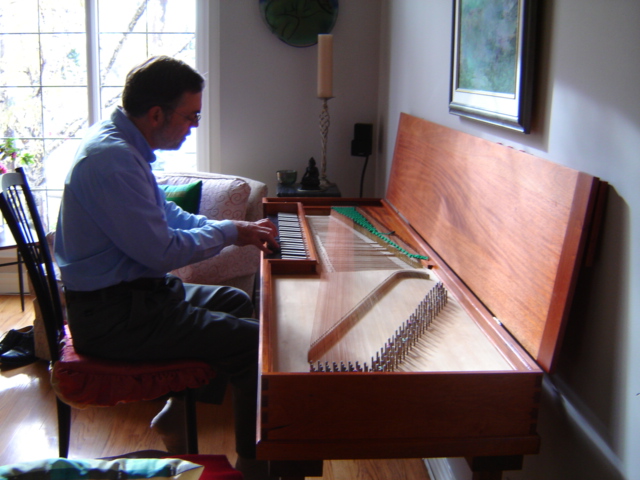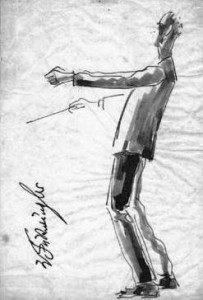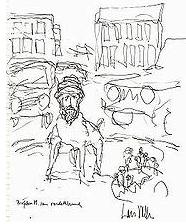Aung San Suu Kyi

Photograph: Khin Maung
and karma as inspiration for The End of the Monsoon
It was in a bookstore in the old Hong Kong airport in the mid ’90s that I picked up the first book I read by Aung San Suu Kyi. I have it still. It is called The Voice of Hope, and is a collection of conversations she had with Alan Clements.
Suu Kyi has put Burma on the map, and when I needed a prisoner of conscience for the plot of The End of the Monsoon (I was living in Cambodia), I naturally thought of her. In the end I invented a politically active, British-educated Burmese monk, but I had her writings in mind when I tried to develop, in my novel’s final chapters, a little of his character.
I also had in mind my late wife’s beliefs. She was a western Canadian Buddhist, intellectual, spiritual, also skeptical, with an emphasis on intention and works. I’m certain Suu Kyi’s writings resonated with her. Although Suu Kyi is Burmese, her thoughts below on the importance of metta, of a questioning attitude, on right intention and on works represent to me the refined western approach to Buddhism of which I am familiar.
Excerpts from chapter 10 of The Voice of Hope:
Suu Kyi: …as time went on, like a lot of others who’ve been incarcerated, we have discovered the value of loving-kindness. We’ve found that it’s one’s own feeling of hostility that generates fear. I never felt frightened when I was surrounded by all those hostile troops. That is because I never felt hostility towards them. As Burmese Buddhists, we put a great emphasis on metta. It’s the same idea as in the biblical quotation: ‘Perfect love casts out fear’. While I cannot claim to have discovered ‘perfect love’, I think it’s a fact that you are not frightened of people whom you do not hate. Of course, I did get angry occasionally with some of the things they did, but anger as a passing emotion is quite different from the feeling of sustained hatred or hostility.
Clements: What is the core quality at the centre of your movement?
Suu Kyi: Inner strength. It’s the spiritual steadiness that comes from the belief that what you are doing is right, even if it doesn’t bring you immediate concrete benefits. It’s the fact that you are doing something that helps to shore up your spiritual powers. It’s very powerful.
Suu Kyi: …complacency is very dangerous. What we want to do is to free people from feeling complacent. Actually, with a lot of people it’s not a sense of complacency either. I think that many people just accept things out of either fear or inertia. This readiness to accept without question has to be removed. And it’s very un-Buddhist. After all, the Buddha did not accept the status quo without questioning it.
Clements: Yes, he radically questioned. It’s the basis of his teachings.
Suu Kyi: Yes, absolutely. In Buddhism, you know the four ingredients of success or victory: chanda–desire, or will; citta–the right attitude; viriya or perseverance; and panna–wisdom. We feel that you have got to cultivate these four qualities in order to succeed. And the step prior even to these four steps, is questioning. From that you discover your real desires. Then you have got to develop chanda. Chanda is not really desire. How would you describe it?
Clements: Chanda is normally translated as the ‘wish to do’ or intention. Every action begins with it. Where there is a will there is a way.
Suu Kyi: Yes. You must develop the intention to do something about the situation. From there you’ve got to develop the right attitude and then persevere with wisdom. Only then will there be success in your endeavour. Of course, the five basic moral precepts are essential, to keep you from straying as it were. With these we will get where we want to. We don’t need anything else.
Clements: So what you’re doing is fostering a sense of individual courage to question, to analyse….
Suu Kyi: And to act. I remind the people that karma is actually doing. It’s not just sitting back. Some people think of karma as destiny or fate and that there’s nothing they can do about it. It’s simply what is going to happen because of their past deeds. This is the way in which karma is often interpreted in Burma. But karma is not that at all. It’s doing, it’s action. So you are creating your own karma all the time. Buddhism is a very dynamic philosophy and it’s a great pity that some people forget that aspect of our religion.














